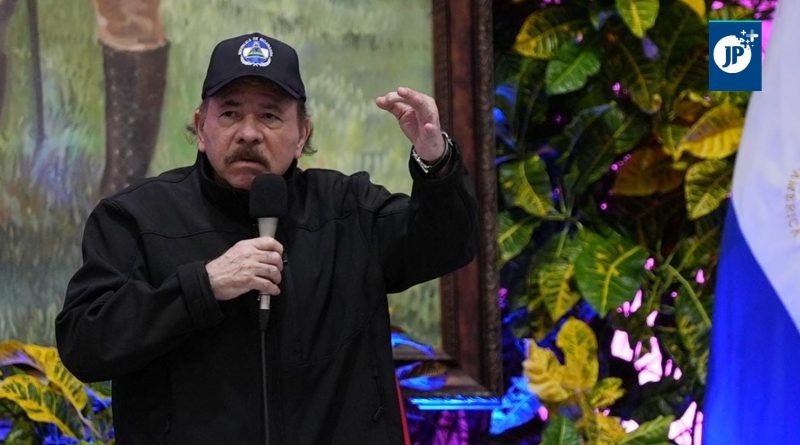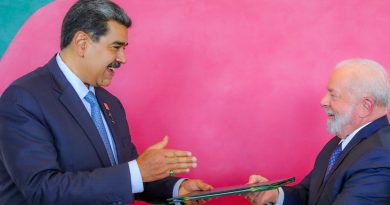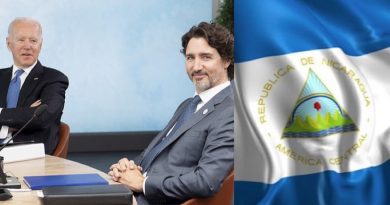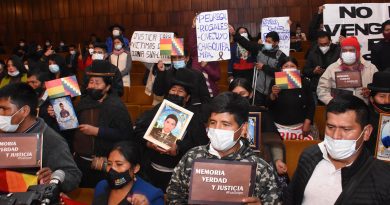Letter from President Daniel Ortega to UN Secretary General Regarding ICJ 1986 Ruling
Below is the letter from President of Nicaragua, Daniel Ortega, to United Nations Secretary General António Guterres on the anniversary of the judgement handed down by the International Court of Justice on June 27, 1986.
Managua, June 26, 2023
Mr. António Guterres Secretary General
of the United Nations Organization
Secretary General,
I have the honor to write to you regarding the judgment handed down by the International Court of Justice on June 27, 1986.
The Government of Reconciliation and National Unity of the Republic of Nicaragua requests the Secretary General of the United Nations to circulate, to all Member States, the attached Note with Nicaragua’s position as an official document.
Daniel Ortega Saavedra
THE OBLIGATION OF THE UNITED STATES TO COMPENSATE NICARAGUA
At a time when the United Nations and other forums are discussing the well-deserved compensation that must be established to compensate for the damage caused by slavery and climate change, among others, Nicaragua takes this opportunity to recall that there is a historic debt owed to the Nicaraguan people that after 37 years has not been settled by the United States. It is not a pending obligation to be established or subject to an advisory opinion from a judicial body. It is an obligation clearly established in a final ruling of the highest international judicial authority, the International Court of Justice.
On June 27, 1986, the International Court of Justice issued a sentence condemning the United States of North America to indemnify Nicaragua for all damages caused as a result of military and paramilitary activities against Nicaragua. Although the Court recognized that in a situation of armed aggressions like the one carried out by the United States, no type of reparation – neither economic nor moral – could compensate for the devastation of the country, the loss of human life and injuries physical and psychological to the Nicaraguan people, the Court decided that the United States had the legal obligation to financially compensate Nicaragua for all the damage caused.
The list of direct damage includes human damage, direct material damages, defense expenses, losses caused by the embargo; also, other damages such as social losses in education, health, employment, social security, as well as loss of potential for development and production. From all point of view, the right to development of the nation was irreparably affected. The economy underwent a total reorganization to allow the population to survive the conditions of aggression to which it was submitted by the United States in all aspects of the economic and social life of the country, in addition to the military and paramilitary attacks.
The estimated cost of the damages in March 1988, the date on which the Report was presented along with all supporting documentation, was estimated at 12 billion dollars. This amount does not reflect damages after that date, the consequences of which are currently verifiable. For example, to this day the country’s social security system continues to pay pensions to the war-injured and their families, including those who were part of the counterrevolutionary forces illegally financed by the United States, which never assumed the social cost of these illegalities.
In addition, the damages for which Nicaragua requested compensation did not reflect the totality of actual damages but were limited to the acts over which the Court had litigating jurisdiction. The quantification of the damages suffered by Nicaragua, presented to the International Court of Justice (ICJ), had the support and endorsement of the Economic Commission for Latin America (CEPAL) of the United Nations.
The compensation owed to Nicaragua remains unpaid. Nicaragua discontinued the proceedings before the Court to determine the amount owed, but at no time did it waive the payment of the debt, that is, the right to receive compensation. Nicaragua never received anything to which it was not entitled (such as
the right not to be attacked) in exchange for discontinuing the trial before the Court. Instead of receiving compensation as it morally and legally deserves, Nicaragua is being subjected to a new type of aggression.
It is in this context, in which Nicaragua is once again the victim of aggression, now euphemistically called sanctions, and the victim of an attempted coup d’état, that the people of Nicaragua recall the historic judgment of the International Court of Justice.
Nicaragua has been a party to 15 major cases presented before the International Court of Justice and is the third country with the most cases resolved by the Court. Nicaragua has faithfully complied with all the judgments handed down by the Court. It is with this moral authority that Nicaragua reminds of a sentence handed down 37 years ago, which is being studied and respected in most of the world.
Nicaragua takes this opportunity to recall that the judgments of the International Court of Justice are final and of obligatory compliance, and therefore the United States has the obligation to comply with the reparations ordered by the Judgment of June 27, 1986.
By Kawsachun News



